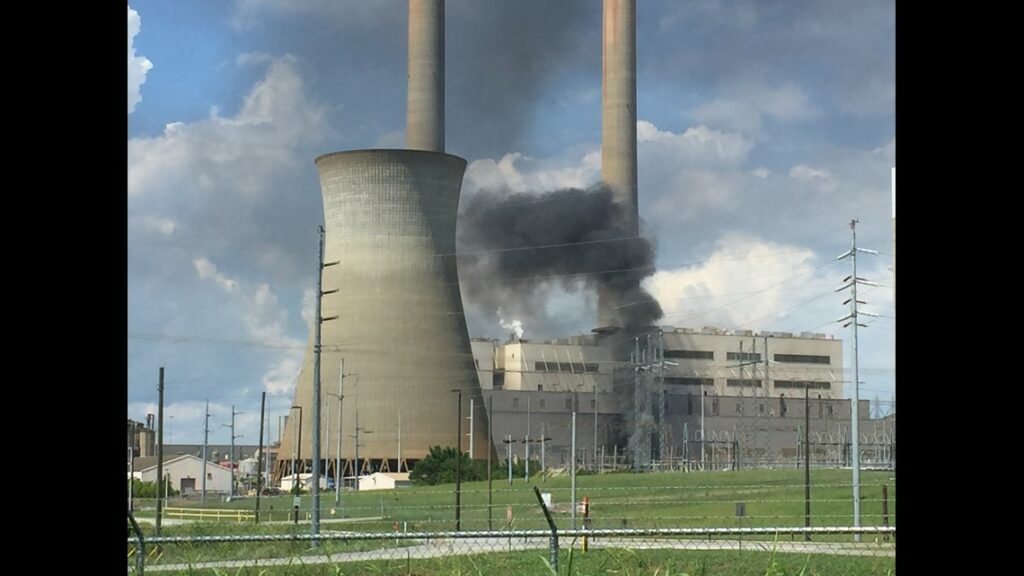
Georgia House Democrats want the state’s largest energy provider to clean up its coal ash, the toxic byproduct of burning coal at several power plants in the state.
A bill filed Monday, the first day of the 2020 legislative session would force Georgia Power Co. to install impervious lining around every site where coal ash is stored, including ash ponds set for permanent closure in the coming years. The measure aims to keep the ash from leaching into nearby drinking wells and underground aquifers.
“We have to be protective of our groundwater,” said Rep. Mary Margaret Oliver, D-Decatur, one of the bill’s six Democratic co-sponsors. “The possibility of toxic coal ash seeping into the water is very real.”
Georgia Power is in the process of closing all 29 of the large pond areas that store coal ash, which contains compounds that can cause cancer after long exposure. Going forward, the company plans to dispose the ash only in dry landfills.
But environmentalists say some ash ponds will be sealed in place forever without any protective lining, creating the potential for groundwater contamination. They point to reports released in August by the nonprofit Southern Environmental Law Center that showed ash has already leached into the groundwater around some ponds at Georgia Power plants.
Georgia Power spokeswoman Holly Crawford said the company is reviewing the bill. She said 10 of the 29 ponds will be sealed in place “using proven engineering methods and closure technologies,” and that the closures meet state and federal regulations. Company representatives also tout the economic benefits of recycling coal ash into materials like concrete.
The bill’s backers expect pushback from the bill to center on how much it would cost Georgia Power to install new liners. The company is set to collect $525 million from customers through 2022 to clean up coal ash under a rate increase request the Georgia Public Service Commission approved last month.
Tim Echols, the commission’s vice chairman, stood behind Georgia Power’s current plans to close ash ponds in a message on Twitter, noting new federal and state environmental rules on coal ash factor into clean-up costs.
“Your rates are going up right now because of the billions for coal ash clean up we just approved per federal & state regs,” Echols said. “And I have seen the hundreds of wells they are monitoring monthly. And they have purchased more properties creating a greater buffer.”
Lawmakers may shy away from charging Georgians extra for even more ash clean-up, said Fletcher Sams, the executive director of the Brunswick-based nonprofit Altamaha Riverkeeper. Still, he argued people living near power plants should have peace of mind over their water quality, regardless of how much it costs to safeguard against ash contamination.
“Ratepayers should not have to foot the bill for inadequate closure plans,” Sams said. “We want to do it the right way the first time.”
This story has been updated to include a response from Georgia Power.
